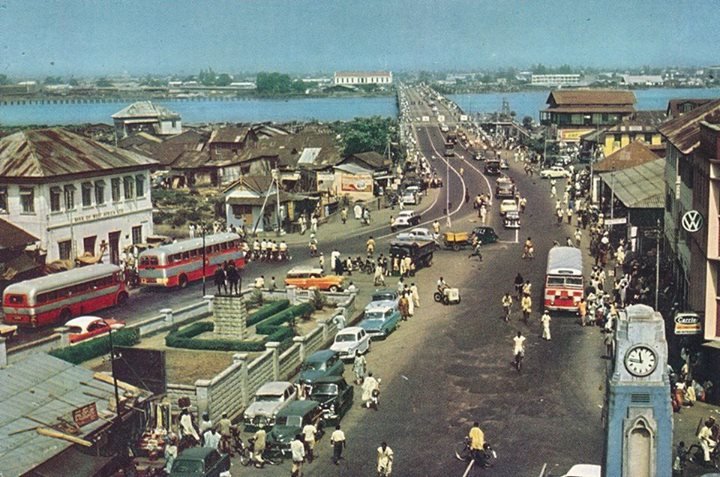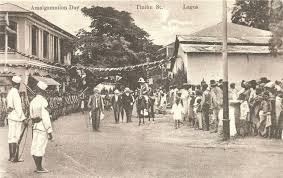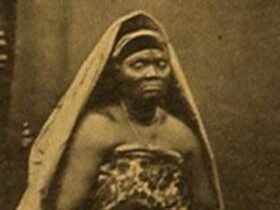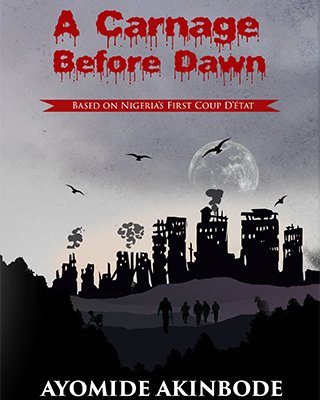No products in the cart.

It was in 1947 when Jaja Anucha Wachuku, the first indigenous Speaker of the Nigerian House of Representatives and the first Nigerian Minister for Foreign Affairs referred to Lagos as a “no man’s land”.
In 2013, a former governor of Abia State, Orji Uzor Kalu also made the same assertion, generating a lot of debate among Nigerians.

Lagos
Lagos, also known as Èkó, is the most populous state in Nigeria. It is also one of the fastest-growing cities in the world, a significant financial centre in Africa, and the economic capital of West Africa. The megacity has the seventh-largest economy in Africa (as of 2016) and houses one of the largest and busiest seaports on the continent.

So, it is unsurprising that the megacity would be referred to as a “no man’s land”, due to the presence of almost every Nigerian tribe, as well as foreigners from other countries in the city.
But, is Lagos really a “no man’s land”? You can check out the video below…
We always have more stories to tell, so make sure you are subscribed to our YouTube Channel and have pressed the bell button for interesting historical videos. Don’t hesitate to follow us on all our social media handles and to as well share this article with your friends.
You can also get Ayomide Akinbode’s latest historical novels on Amazon, Rovingheights, and Okadabooks.
4 Comments
View CommentsLeave a Reply
You must be logged in to post a comment.








Worrisome how people cheapishly bought into this age long strategy of divide and rule, which charactised our present political space. These blood tasty Elitist will stop at nothing to keep fueling their greed and insatiable pursuit for power and wealth. I weep for my country as the gaulible unassuming masses would neither critically examine nor scrutinise these arguments as they spew it out, but rather gulb all of it without recourse. I weep for Nigeria
If only the argument is about setting the facts straight, I would have thought well of this paranoia over proving the statement wrong. But that the entire uproar became a central campaign issue and the biggest determinant of Yoruba electoral behaviour these past few weeks is tragic. It is sad seeing how much the Yoruba had to sacrifice the last vestiges of their traditional moral fibre. It took Obas, bales, white-cap chiefs, the ancient Oro institution as well as the run-of-the-mill otherwise ordinarily humane and urbane young and old Yoruba man and woman to rig the election. These were not the typical agbero deployed generously during this period for that same purpose. If it has to take all this effort to win a routine election, then I wonder if the cost does not far outweigh the gain.
My heart bled at how venerable elders and chiefs got their hands dirty, harassing harmless non-natives, forcing people to either vote APC or be turned away, or snatching ballot papers from the hands of stubborn “Igbos” (some of them, unknowingly Yoruba who refused to toe the party line) and tearing them up in the full glare of compliant police officers. For good effect, they had to intimidate every possible enemy of APC with warnings and boasts of “Go to Anambra and vote LP, not here. We own this place; go back to your state!” Insults were hurled at the ingrate Igbo who abuse Yoruba hospitality and goodness of heart. Culture and civility was discarded and even elders played the role of area boys.
Whereas my wife was almost lynched because she dared question why two young women were ordered out of the polling station because they were not Yoruba and therefore could not be trusted , I was constantly watched and followed by several furrowed eyes and long worded scary threats thereafter, until I left the venue, because I dared escort my wife out of the area— they were not sure of the connection between my wife and me. Of course, most of the non-APC party agents faded away. Finally, afraid for my safety, I had to leave without waiting for the votes to be counted— as practically every other non-indigene, including Igbos and non-Igbos.
If it had to take a race as well cultured and urbane as the Yoruba to throw everything to the dogs in order to prove that they own Lagos, then I think the joke is on all of us. If an ancient ritual and cult had to be invoked and traditional rulers, family elders and chiefs had to get their hands so dirty with suppressing votes and rigging elections, then I , as anyone who realizes the damage done to the Yoruba society’s social values, mourn— not because my favourite candidate lost, but because the Yoruba have in one fell swoop sacrificed everything by which they have been regarded on eternity, over a prank played on them by a dying political breed who resorted to the cheapest strategy to survive beyond their expiry date. A society where the supposed repositories of its social.and moral core , left their protected reserves and dived into the mud flats is damaged. What has come over the Yoruba— known for their eternal values, their traditions that remain irrespective of passing time. Elsewhere, in the last holdouts of a fading dignity, the Oba of Benin as the Sultan of Sokoto blessed everyone who came to intimate him of a political ambition— they came from far and near. But in Lagos, the Obas and Baales were steeped waist-high in the mire of partisan alliances. No wonder when some people flew the kite that Igbos want to take over Lagos, the ancient institution lost its cool, and, collectively, we—me and you— are all the loser for it.
Thank you so much, you made my day. You did Justice to the topic in question which is the current discourse.
Nothing more to add sir…The Yorubas simply went overboard, akin to attempting to kill a rat with a submachine gun. I was very disappointed. A great people brought low by insecurity…Sad